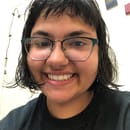Growing up, I only saw TV shows with white, skinny, heterosexual, cisgender, able bodied actresses. I felt like I didn’t matter, and like the issues I faced were not important to society. On top of that, I was being bullied at school for things I couldn’t control: I wasdisabled and too brown. I spent years wanting to be white and able bodied. I wanted to look like Miley Cyrus or Demi Lovato. I wanted to be able to walk around without a limp. I wanted to have those light blue eyes and the blond hair with the slight tan. I aspired to be one of those girls who took pictures of their hair in the wind with the beautiful beach curls. I used to cry at night, thinking about how I would never look like them. I would always be disabled, queer, and brown.
It was hard enough to be the child of two immigrants from the Middle East, post 9/11, but I was also disabled. Nothing about who I was made sense to my classmates. Why was my skin browner than theirs? Why was I limping? Why did my parents speak weirdly? I think a lot of times when we talk about intersectionality, we forget that some of the most marginalized people are disabled queer people of color. How many disabled queer people of color have we seen on TV? We are often left swept to the side when it comes to activism or representation.
Intersectionality and representation come hand and hand because all my identities collide and no one even knows I exist. It is so hard to exist in a world that doesn’t want me to exist. People argue, “Oh? What’s next? We will have disabled, gay, and brown people on TV?” My identity wouldn’t be so crazy or wild if it got some proper representation. Other kids like me who never felt in place with any of society’s standards deserve to feel seen and worthy of love. Other kids with “ridiculous” identities deserve to be seen. I want to see a Jewish queer person of color on TV or a Black disabled Trans woman. I am sick of all these TV shows carrying the same kind of actors. I don’t need another sitcom with an all white, heterosexual, cisgender, able bodied cast where they live in New York and they only date people like them. We have enough of those.
I know that in order for people like me to truly become accepted in society, we will need more than just TV representation. But TV representation is a good first step to feel loved and needed in a society that wants to harm us. From TV representation, we can talk about the issues that affect various marginalized communities; We can have talks with children.
If children saw all kinds of characters on PBS kids or Disney, then they would understand that everyone is different. There would be less hate in the world. They would also be able to see characters like them. It’s 2020, we need to step up our game and do better with our representation in all media.



